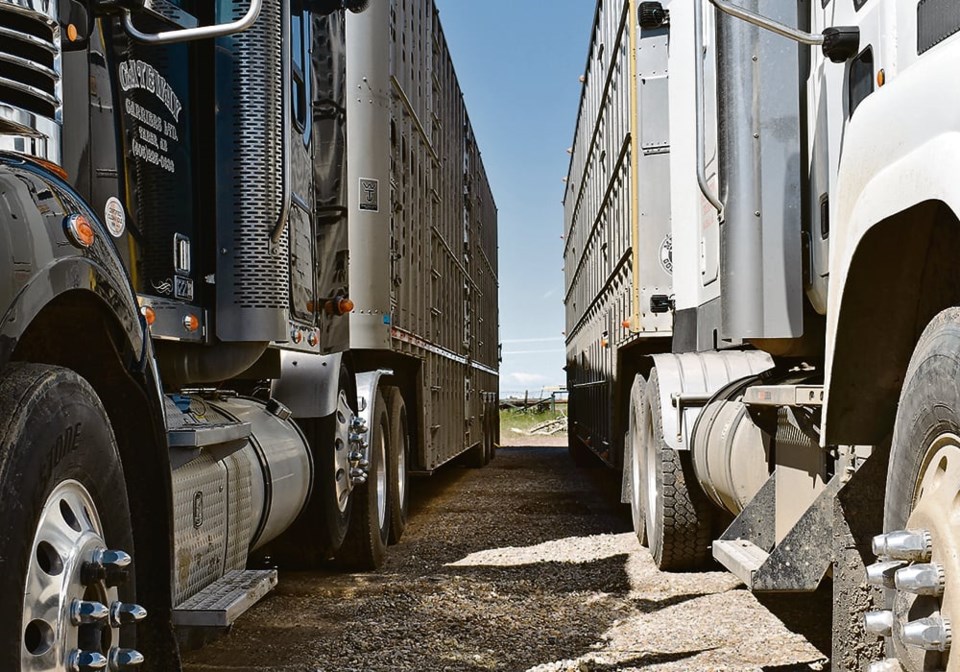New trucking regulations are causing headaches for the livestock industry following the federal government’s imposition of electronic logging devices that fail to account for specific issues.
As of Jan. 1, new regulations require use of the electronic logging devices, which are activated once truckers begin their trips and continue until the trips are ended with no exceptions for animal care issues that might arise during transport.
The Canadian Cattle Association is calling on the federal government to standardize Canadian regulations with those in the United States, which provide an exemption for livestock drivers’ on-duty time if they are within a 150-mile radius of either the origin or destination of their trip.
Terry Johnson, owner of Riverstone Trucking, said the safety of drivers is an important consideration but the new regulations will greatly affect livestock transportation.
“You’re operating on a working clock. You have no windows, no loopholes, no anything and when we were operating on paper logs, you were still subject to audit, but it gave you a little more grace to get things done properly on the livestock end,” said Johnson.
That added grace time gave truckers the ability to deal with problems such as difficulties in loading animals, which can delay departure.
“So, you’re losing time not doing anything,” said Johnson.
Then there are the lineups on busy days at meat processing facilities.
“There are so many variations and so many trucks going into the packing plants,” said Johnson. “The plants try to organize them in properly but you get waves and ripples at different junctures all along the way so you can have spells where you are waiting at the plant for a couple of hours losing time there as well.”
He called the possibility of drivers timing out behind the wheel of a full cattle liner while waiting in such a line, “a logistics nightmare.”
Auction markets present another potential issue, when thousands of animals must be loaded and shipped.
“The cattle just won’t be moving because you can’t afford to waste your time in a long line up and have it sitting there waiting,” said Johnson. “It’s going to cost industry a lot of money. In a lot of cases, these cattle won’t be moving. They’ll be spending the night.”
Commercial drivers can operate their vehicles for up to 16 hours before requiring an eight-hour break while live cattle are limited to 36 hours on a transport.
Johnson said the trucking industry is already facing a number of challenges including a dire need of drivers and rising operating costs.
Because of the time limitations on carrying livestock, along with animal health concerns, Johnson said the options for pulling over at a rest stop for a break are far less than other commercial loads.
“You’re battling multiple elements,” said Johnson. “In the end, if it’s going to cost our industry money, that’s going to be passed down the line.”
While Johnson said he understands that regulations can’t be perfect for everybody, “in the case of live animals, by no means they should have pushed this thing out without putting that into consideration.”
He added the new regulations are already being felt.
“And we’re not even in the busy season of the year and there are problems non-stop,” Johnson said. “There are delays that nobody can control.”
If the federal government acts smartly, he said, it would better balance the realities of livestock transportation with safety.
If not, “it’ll cost the livestock industry huge and you’re talking about the well-being of animals. If you’re taking an animal from the farm to the auction, you’re already causing it stress.”
The CCA and other industry and veterinary organizations are asking, that in the short term, animal welfare should be recognized as an emergency exception when it comes to transportation time limits for drivers.




